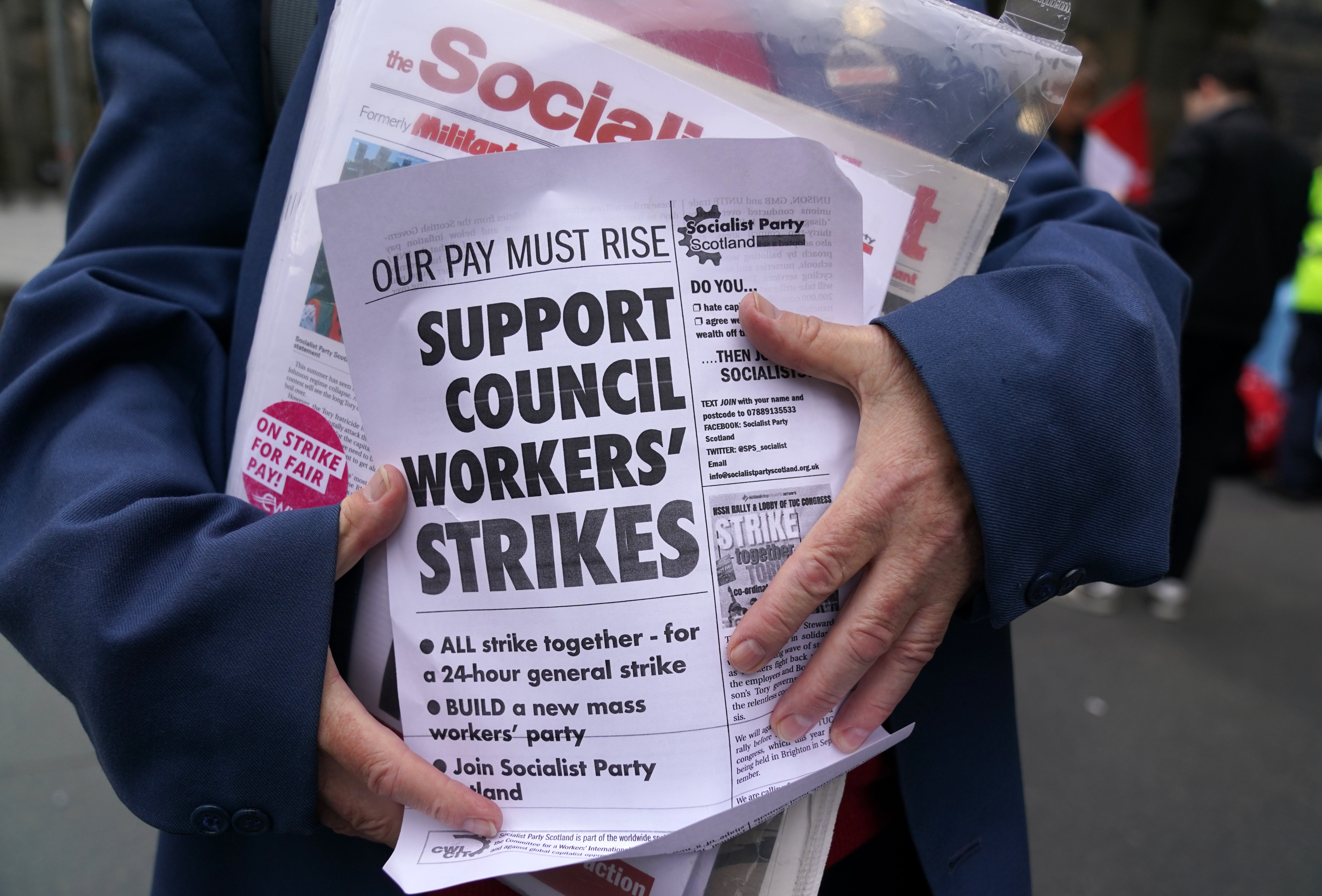
Schools across Scotland will be forced to close next week after trade unions urged members to reject a pay offer from councils.
Thousands of children will have to stay at home as catering staff, cleaners, janitors, teaching assistants and early years practitioners all walk out.
Councils have tried to stop the disruption by offering workers a minimum wage increase of at least £2,000 for next year. However, trade unions have suggested members should reject the deal, saying that the offer is “unacceptable” and “represents a waste of precious time”.
Union sources told The Times that there is still a 24-hour window to avert action, where the councils could offer a new deal. But council leaders are insistent that the offer will not be increased.
This means that strikes will likely affect 12 Scottish councils over four days from 6 September, according to STV.
The action comes after bin workers’ strikes have caused waste to pile up in Scotland’s streets. Unions launched industrial action on 18 August, in the middle of the Edinburgh Fringe Festival, in a row over pay with local government body Cosla.
The initial strike has now come to an end but the pay dispute is still unresolved, with GMB and Unison confirming that further strikes will be held.
Unite industrial officer Wendy Dunsmore on Tuesday warned that a “winter of discontent” lies ahead for Scotland.
He told the BBC: “We are absolutely resolute that this is going to be a winter of discontent and it will escalate but we are hoping against all hope that the Scottish government and Cosla will see sense and get back round the table with a proper rise for the lowest paid within local authorities.”

Deputy first minister John Swinney said: “Combined with the pay uplift itself, that would mean someone earning £20,00, for example, will receive a £2,000 increase in take-home pay - equivalent to 10 per cent.
“Everyone under £39,000 would receive the cost of living payment ensuring their increase is at least £1,925 and it is only those above £39,000 that would just get 5 per cent. No deal is perfect and I wish we could go further but this deal does offer significant increases for those on low pay.”

However Johanna Baxter, from Unison Scotland, said that the current offer “is simply not big enough to deliver a decent consolidated wage rise for the majority of our members.
“Council workers are struggling to cope with the cost of living crisis after ten years of austerity. This is another pay cut they simply cannot afford, which is why we are recommending they reject the offer and continue with the action already planned to try to secure a bigger consolidated sum.”







